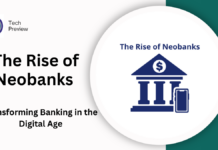Decentralized finance (DeFi) is a rapidly growing sector of the global financial system that relies on blockchain technology to provide users with access to financial services without the need for traditional intermediaries. The decentralized nature of DeFi makes it attractive to many individuals, as it provides an alternative way of accessing financial services that are not available through traditional means. For example, Abracadabra Money is a DeFi crypto lending platform that allows users to borrow, leverage, stake and swap tokens on the platform. It works using three tokens: SPELL (used for incentivization), sSPELL (obtained from staking SPELL tokens) and MIM (used for lending). You may check out the current Spell Token Price on Bybit if you intend to borrow money using the Abracadabra DeFi platform.
What is DeFi and how does it work?
Decentralized Finance is a term used to describe financial applications that are built on top of blockchain networks. It is an umbrella term for various protocols, platforms, and applications that enable users to interact with digital assets in a secure and trustless manner. At its core, DeFi works by leveraging smart contracts such as Ethereum, based on blockchain technology.
Smart contracts are self-executing codes programmed to execute certain actions when conditions are met. For example, a smart contract could be programmed that when certain conditions are met, funds should be transferred from one user’s wallet to another. It eliminates the need for third-party intermediaries and makes transactions more secure and efficient.
Analyzing the regulatory landscape
On a local level, each country has its own set of laws and regulations that must be considered when launching a DeFi project. For example, in the United States, there are federal and state laws that govern financial services such as securities, money transmission, consumer protection, anti-money laundering (AML), and know-your-customer (KYC) requirements.
Many countries have their specific regulations for digital assets such as cryptocurrencies or tokens. It is also important to consider any international regulations that may apply to a DeFi project.
The impact of DeFi on financial markets
Decentralized finance has a major impact on global financial markets. By removing intermediaries, DeFi allows users to access more efficient and cost-effective services, such as lending, borrowing, trading, and investing. It has enabled people in countries with limited access to traditional banking services to gain access to financial products they would otherwise not have been able to use.
DeFi has opened up new opportunities for investors by providing them with more options for diversifying their portfolios and accessing higher returns than traditional investments. As a result, many traditional institutions have been forced to adapt their business models to remain competitive.
Understanding the risks associated with using DeFi
Decentralized finance is a rapidly growing sector of the cryptocurrency industry, but it also carries certain risks. One of the main risks associated with DeFi is that it is still new and untested. It means there could be bugs or vulnerabilities in the code that could lead losses for users.
Since DeFi protocols are open source, malicious actors can exploit weaknesses and create illicit financial risks like stealing users’ funds. Another risk is that many DeFi protocols are built on Ethereum, which means they’re subject to Ethereum’s scalability issues.
Using these protocols can lead to slow transaction times and high fees. Also, since no government body regulates most DeFi projects, there’s no guarantee that users will be able to get their funds back if something goes wrong. For these reasons, it’s important for anyone considering investing in DeFi projects to do their research and understand the risks before getting involved.
In conclusion, DeFi is an innovative and revolutionary technology that has changed people’s views on financial operations. It allows for more transparent and efficient financial transactions and creates new investment opportunities.









